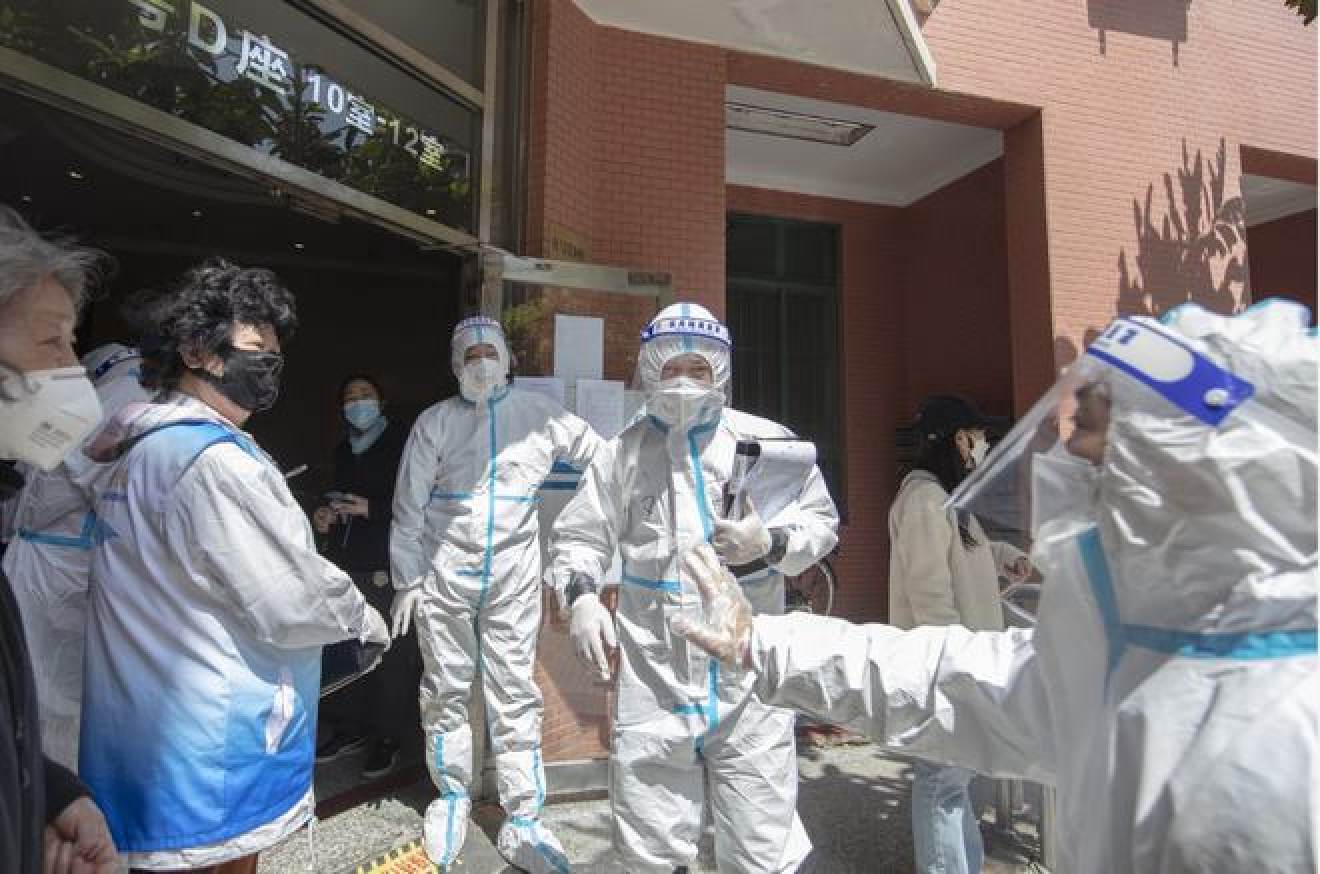
Shanghai Covid lockdown: Chinese community officials feel strain of sleepless nights, mounting workload
- Community officials organise Covid-19 tests, distribute necessities and coordinate transport of coronavirus patients and close contacts to isolation
- Many are feeling the strain of China’s worsening coronavirus outbreak
The resignation letter, released on the WeChat last week, was written by Ma Shengye, the Communist Party’s secretary in charge of a residential compound in the city’s Huangpu District and explained he was resigning due to his frustration from his work in the anti-Covid-19 campaign.
The recorded conversation from last week was between a resident of Hong Kong Beauty Garden, a compound in the Hongkou District, and their community’s party secretary Liu Miao. The resident, who is a nurse, applied to Liu for permission to leave her residential building to return to her hospital job. Liu, who was aware it was against government’s rules after a Covid-19 patient had been found in the building, approved her request anyway and took on the risk of being punished.

“I know there is a great shortage of manpower in hospitals. I understand that. I will also collapse,” Liu said, sounding tearful in the recording.
“Anyway, I don’t care [about the rule]. Since you are a medical worker, I approve for you to go to the frontline,” said Liu. “But you must promise you will only go to the hospital, no other places at all.”
There are about 50,000 community affairs officials based in more than 10,000 residential blocks across Shanghai, the Xinmin Evening News reports. They work in each community’s residents committee and are supposed to be elected by the residents. But in practice, a high percentage of community officials are appointed by the authorities.
During the coronavirus outbreak, community officials as well as resident volunteers have been busy organising nucleic acid tests and antigen tests, distributing daily necessities, compiling statistics and coordinating the transport of coronavirus patients and close contacts to temporary accommodation centres, known as fangcang in China.

They are also responsible for helping residents contact drug stores and hospitals for medicines, and delivering food to the elderly people who live alone.
Like Ma and Liu, many other community officials in Shanghai have all been struggling by the overload in the Covid-19 fight since last month.
For the past couple of weeks, Liu has been sleeping on two chairs in his office.
Ma has been doing the same, sleeping on a camp bed in his office since the middle of last month when coronavirus positive cases were found in his community.
For Ma, after his resignation letter was released, over 200 residents in his community left messages hoping he would stay, the People’s Daily reported.

The official, in his 50s, led his team including six social workers and dozens of volunteers to work around the clock since last month, waking up at 5 to 6am and going to sleep at 2am the next day.
One of his teammates said: “I realised what a happiness it would be if I could go back home to change my clothes and have a bath”, the report from the People’s Daily said.
Besides feeling exhausted, Ma said he felt confused about the government’s constant policy changes.
“Regarding the information about whether a building will be closed and when it will be closed, I know no more than ordinary residents,” he said.
“The pandemic situation changes fast and it’s a norm that we receive notices in short advance. It happened so often that we were informed suddenly that a building must be sealed off or a nucleic acid test should be carried out immediately,” said Ma.
He said his community had once reported nine coronavirus positive cases and 11 close contacts, but it was many days later that all of them were transported to fangcang.
“I understand that Shanghai’s medical resources are under great pressure. More fangcang centres are being built and I hope our target of accommodating and quarantining all those patients or close contacts can be realised soon,” Ma said.

